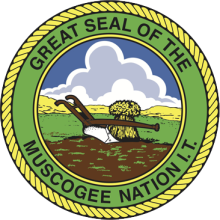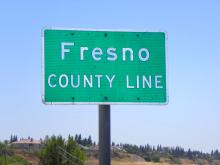
Over the next few years, we will see an upward trend of fiber infrastructure being built (RDOF, privately announced investment from monopoly providers, NTIA $10 billion broadband infrastructure program, and now, the passing of the infrastructure bill). We will need, as a country, more fiber technicians to do this work, but there is a lack of fiber training programs.
To meet this need and in response to dual dilemma of an ever present need for affordable, reliable, high-speed broadband, and the number of citizens that have been dislocated or laid off due to the pandemic, the Oklahoma State University Institute of Technology has partnered with Cherokee Nation Career Services (CNCS) and Muscogee (Creek) Nation Reintegration Program to create a fiber technician training program.
As part of the Muscogee (Creek) Nation Reintegration Program, the first nine participants graduated from the Muscogee (Creek) Nation Fiber Optic Technician program on Sept. 10.
The fiber optic technician training program takes place in person over the course of eight weeks followed by a four-week internship. According to the RIP website the course covers pole climbing and fiber splicing. OSHA 10 and CPR certification are also included.
“This is a significant program for OSUIT to be involved with,” Na-komas Blackford, Workforce Training Coordinator at OSUIT, said in a press release on OSUIT’s website. “The broadband industry is growing and expected to continue growing in Oklahoma. OSUIT specializes in high-demand training, and this is one area we did not want to miss out on.”
Training for Success
The Muscogee program came after leaders heard about the success CNCS had when it started in the fall of 2020 and already has several participants working in the field.
“[CNCS’ training program] currently has an employment placement rate of 100%,” Blackford said in OSUIT’s June press release. “The average Fiber Technician salary in the United States typically falls between $46,400 and $59,380, although it does change with each employer. We have seen several of our students that complete the program on track and make a significantly higher first-year salary than what is reflected in the top of that range.”
The Muscogee (Creek) Reintegration Program offers resources to eligible formerly incarcerated Muscogee (Creek) citizens, such as housing, food, and clothing in an effort to “protect the public by offering quality reentry services to Mvskoke citizens and re-invest positive citizens back into our communities,” according to the program website.
“It’s great to see these guys succeed,” Mark Harjo, Outreach Specialist for RIP told MVSKOKE Media. “Some of them had initially left the program (Muscogee (Creek) Nation Reintegration Program) but then once we told them about this and what they could do and how successful they could be, they came back to our facility to take this program (Fiber Optic).”
OSUIT Division of Workforce & Economic Development (WFED) provides the instructors, curriculum, training supplies and related equipment for the program. Both CNCS and the Muscogee (Creek) Nation Reintegration Program plan to continue offering the course to citizens.
A number of communities across the country have stepped up to meet the labor shortage through training programs, from Wilson, North Carolina to Coos and Curry counties in Oregon.







